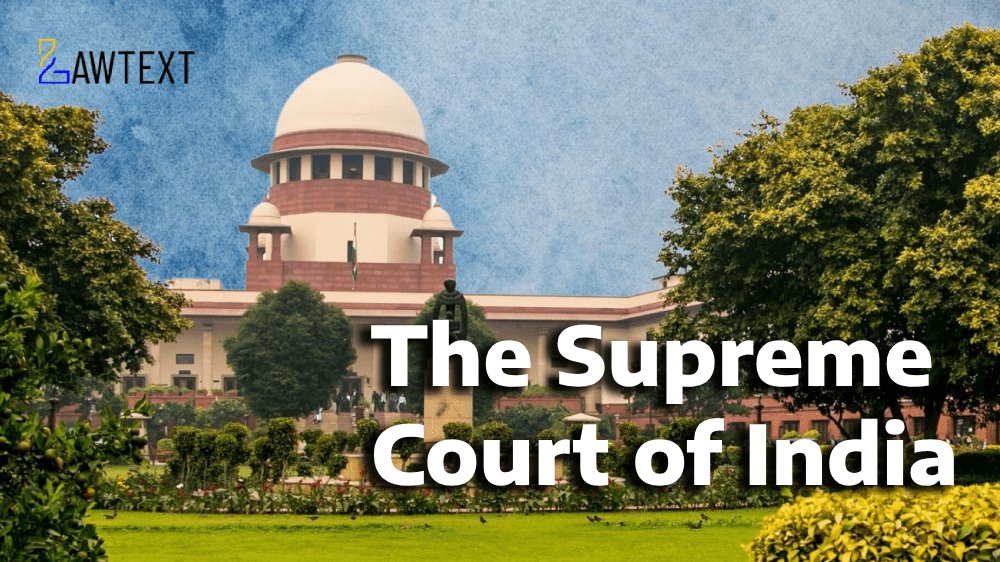

The Supreme Court quashed the criminal proceedings against the Appellants, holding that the allegations were generalized and lacked specific overt acts to constitute criminal liability. The Court emphasized that criminalizing domestic disputes without specific allegations and credible evidence would amount to an abuse of the process of law.
The Court emphasized that “criminalizing domestic disputes without specific allegations and credible materials to support the same may have disastrous consequences for the institution of family” (Para 31).
The Court held that “mere general allegation of harassment without pointing out the specifics against such perpetrators would not suffice” (Para 34).
The Supreme Court quashed the criminal proceedings against the Appellants, holding that the allegations were generalized and lacked specific overt acts. The Court emphasized the need for specificity in domestic violence cases to prevent misuse of the criminal process.
Generalized Allegations: (Paras 6, 24, 31) Hearsay Evidence: Paras 20, 21, 23 Specificity in Domestic Violence Cases: (Paras 31, 35) Quashing of Proceedings: (Paras 13, 14)
Major Acts:
Constitution of India (COI), Article 142 – Power of the Supreme Court to pass any order necessary for doing complete justice.
Code of Criminal Procedure, 1973 (CrPC), Section 482 – Inherent powers of the High Court to quash criminal proceedings to prevent abuse of the process of the court or to secure the ends of justice.
Indian Penal Code, 1860 (IPC), Section 498A – Husband or relative of the husband subjecting a woman to cruelty.
Dowry Prohibition Act, 1961, Sections 3 and 4 – Penalties for giving or taking dowry.
Protection of Women from Domestic Violence Act, 2005 (DV Act) – Provides protection to women from domestic violence.
Subjects:
Dowry harassment – Domestic violence – Generalized allegations – Specific overt acts – Quashing of criminal proceedings – Abuse of process of law – Prima facie case – Matrimonial disputes – Hearsay evidence – Family relationships.
Facts:
Nature of the Litigation:
Criminal appeals were filed by Geddam Jhansi and Geddam Sathyakama Jabali (Appellants) against the refusal of the Telangana High Court to quash criminal proceedings under Section 498A IPC, Sections 3 and 4 of the Dowry Prohibition Act, and the Domestic Violence Act.
The Appellants were accused of harassing the complainant, Premlata, for additional dowry and subjecting her to mental and physical cruelty.
Who is Asking the Court and for What Remedy?
The Appellants sought quashing of the criminal proceedings against them, arguing that the allegations were vague, generalized, and lacked specific overt acts to constitute criminal liability.
Reason for Filing the Case:
The complainant alleged that her husband, mother-in-law, and other family members, including the Appellants, harassed her for additional dowry and subjected her to mental and physical cruelty.
The Appellants contended that the allegations were baseless and that no specific acts of harassment were attributed to them.
What Has Already Been Decided Until Now?
The High Court had declined to quash the criminal proceedings, holding that the allegations were triable issues.
Issues:
Whether the criminal proceedings against the Appellants could be quashed under Section 482 CrPC, given the generalized nature of the allegations and lack of specific overt acts?
Whether the allegations against the Appellants, based on hearsay evidence and vague statements, were sufficient to sustain criminal charges under Section 498A IPC, Dowry Prohibition Act, and DV Act?
Submissions/Arguments:
Appellants: The allegations were vague, generalized, and lacked specific overt acts. The statements of witnesses were based on hearsay and did not provide any new evidence. The Appellants did not reside with the complainant and her husband, making their involvement unlikely.
Respondents: The allegations were supported by the complainant, her parents, and panchayat elders, and the chargesheet disclosed a prima facie case against the Appellants.
Ratio:
Generalized Allegations Insufficient for Criminal Liability: The Court held that mere generalized allegations of harassment without specific overt acts cannot sustain criminal charges. The allegations must be specific and supported by credible evidence (Paras 6, 24, 31).
Hearsay Evidence Not Sufficient: The statements of the complainant’s parents and panchayat elders were based on hearsay and did not provide any new evidence against the Appellants (Paras 20, 21, 23).
Criminalizing Domestic Disputes Requires Specificity: The Court emphasized that criminal proceedings in domestic disputes should only be initiated when specific allegations with supporting materials are present. General allegations without specifics can lead to misuse of the criminal process (Paras 31, 35).
Quashing of Proceedings Under Section 482 CrPC: The Court reiterated that even after the filing of a chargesheet, the High Court can exercise its inherent powers under Section 482 CrPC to quash criminal proceedings if no prima facie case is made out (Paras 13, 14).
Citation: 2025 LawText (SC) (2) 73
Case Number: CRIMINAL APPEAL NO(s). _____ OF 2025 (Arising out of Special Leave Petition (Criminal) No.9556 of 2022) WITH CRIMINAL APPEAL NO(s). _____ OF 2025 (Arising out of Special Leave Petition (Criminal) No.428 of 2024
Date of Decision: 2025-02-07
Case Title: GEDDAM JHANSI & ANR. VERSUS THE STATE OF TELANGANA & ORS.
Before Judge: (B. V. NAGARATHNA J. , NONGMEIKAPAM KOTISWAR SINGH J.)
Appellant: GEDDAM JHANSI & ANR.
Respondent: THE STATE OF TELANGANA & ORS.